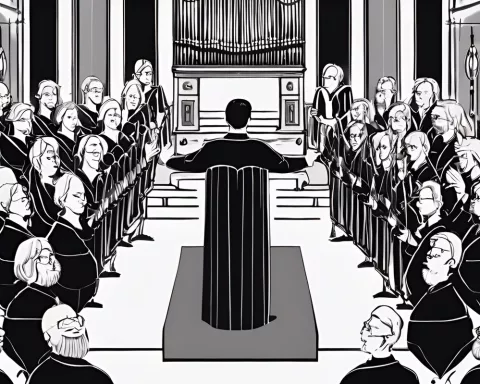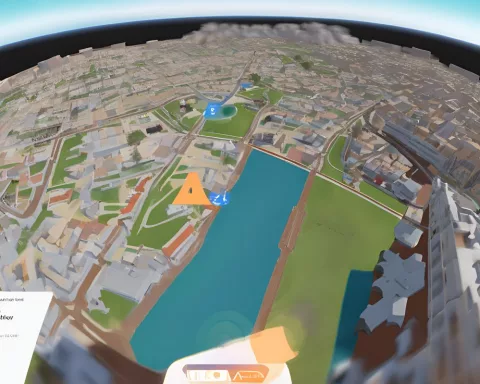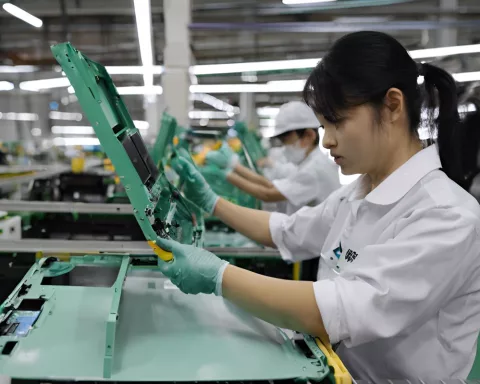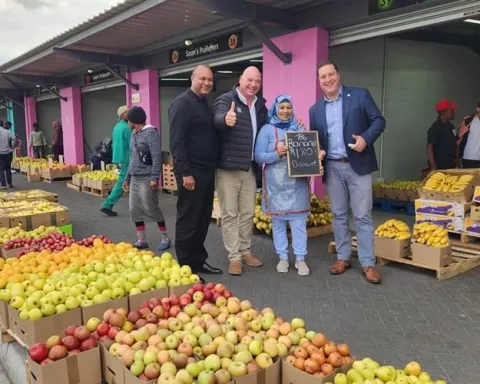The Parliament of South Africa has unveiled a cutting-edge TV studio, in an effort to make legislative proceedings more transparent and comprehensible to the public. The launch of the studio provides citizens with an opportunity to engage in the legal process like never before, with the role of broadcast media being crucial in shaping public views and understanding of parliamentary proceedings. However, offering a broadcast service comes with significant costs, and the Parliament is investigating funding models for its broadcasting services.
What is the Parliament TV Studio in South Africa?
The Parliament TV Studio in South Africa is a top-notch broadcasting facility that aims to make the legislative process more transparent and approachable for citizens. The launch of the studio provides an opportunity for individuals to engage in and comprehend legal processes better than ever before. While the role of broadcast media is crucial in shaping public views and understanding of parliamentary proceedings, offering a broadcast service is a costly venture. South Africa’s Parliament is investigating funding models for its broadcasting services, highlighting the delicate equilibrium between licensing requirements and the legislative framework necessary for Parliament’s broadcasting services.
Nestled within South Africa’s epicenter, a broadcasting transformation is underway. This isn’t a mere technological upgrade but a step towards transparency, accessibility, and democratization of knowledge. The Parliament’s Executive Authority is celebrating a significant achievement with the official unveiling of a top-notch Parliament TV Studio by the MultiChoice Group.
Pioneering Developments in Broadcasting
Recent times have observed a flurry of activities, including an impressive legislative oversight summit and the launch of a high-tech TV studio. These milestones symbolize South Africa’s advancing legislative environment.
The launch of the Parliament TV Studio brings forth promises of an increasingly transparent and approachable legislative process. What does this mean for South Africa’s citizens? It provides them with an opportunity to engage in, and comprehend the legal process more than ever. Considering television as a news outlet for nearly 90% of the populace, this progress bears immense relevance.
The role of broadcast media in shaping public views and understanding of parliamentary proceedings is crucial. An IPSOS Markinor survey lends weight to this claim, as it indicates that over 60% of South Africa’s citizens turn to the radio for updates on parliamentary affairs.
Challenges and Solutions in Broadcasting
Nevertheless, every revolution has its obstacles. Offering a broadcast service is a costly venture. The financial implications of running the Parliament Broadcasting Service will particularly affect the seventh Parliament and the subsequent ones.
Parliaments worldwide have adopted diverse funding models for their broadcasting services. South Africa’s Parliament is also investigating these models. It highlights the delicate equilibrium between the licensing requirements of the Independent Communications Authority of South Africa (ICASA) and the legislative framework necessary for Parliament’s Broadcasting Services.
As a constitutional institution, Parliament carries unique responsibilities and distinct public service commitments. The existing legal framework for broadcasting, though solid, doesn’t thoroughly address the intricacies of Parliament’s foray into broadcasting. Thus, advocating for legislative intervention becomes paramount.
Fostering Democracy and Information Dissemination
Parliament’s role goes beyond law-making. It is also responsible for establishing a robust and enhanced framework for information dissemination to ensure public engagement in its operations. The development of effective communication mediums, such as a free-to-air parliamentary TV channel and radio, is crucial in achieving this mandate.
The collaboration with MultiChoice is a significant stride towards this objective. This alliance is not just about financial backing; it’s about a mutual commitment to fortifying democracy. MultiChoice’s contributions go beyond the Parliament TV Channel, reflecting their steadfast support for the democratic processes within Parliament.
Former Speakers Baleka Mbete and Thandi Modise planted the seed of this vision, their foresight secured the realization of the studio concept. The transition from vision to reality is a testament to the unwavering dedication of leaders such as the Group CEO of MultiChoice, Mr. Calvo Mawela.
In its core, democracy is not a historical occurrence; it is a dynamic process. It thrives on involvement, with each voice enhancing its strength. This broadcasting metamorphosis is an invitation to all South Africans to contribute to their democracy, making their voices resonate in Parliament, in the provincial legislatures, and across society.
A New Chapter in South Africa’s Parliamentary History
The introduction of the Parliament TV Studio transcends a mere ceremony; it signifies the initiation of a new era in South Africa’s parliamentary chronicle – an era that aims to bring Parliament and its people closer together.
While we recognize and value the past and present endeavors that have made this possible, we also anticipate the future – a brighter future enlightened by the promise of transparency, accessibility, and a fortified democracy.
- What is the Parliament TV Studio in South Africa?
-
The Parliament TV Studio in South Africa is a top-notch broadcasting facility that aims to make the legislative process more transparent and approachable for citizens.
-
What is the significance of the Parliament TV Studio?
-
The launch of the studio provides an opportunity for individuals to engage in and comprehend legal processes better than ever before, contributing to a more transparent and approachable legislative process.
-
What is the role of broadcast media in parliamentary proceedings?
-
The role of broadcast media in shaping public views and understanding of parliamentary proceedings is crucial, as indicated by an IPSOS Markinor survey that shows over 60% of South Africa’s citizens turn to the radio for updates on parliamentary affairs.
-
What are the challenges associated with offering a broadcast service?
-
Offering a broadcast service is a costly venture, and South Africa’s Parliament is investigating funding models for its broadcasting services. The delicate equilibrium between licensing requirements and the legislative framework necessary for Parliament’s broadcasting services is also a challenge.
-
How does the Parliament foster democracy and information dissemination?
-
The Parliament’s role goes beyond law-making, and it is responsible for establishing a robust and enhanced framework for information dissemination to ensure public engagement in its operations. The development of effective communication mediums, such as a free-to-air parliamentary TV channel and radio, is crucial in achieving this mandate.
-
What does the introduction of the Parliament TV Studio signify?
- The introduction of the Parliament TV Studio signifies the initiation of a new era in South Africa’s parliamentary chronicle – an era that aims to bring Parliament and its people closer together and make the legislative process more transparent and accessible.












